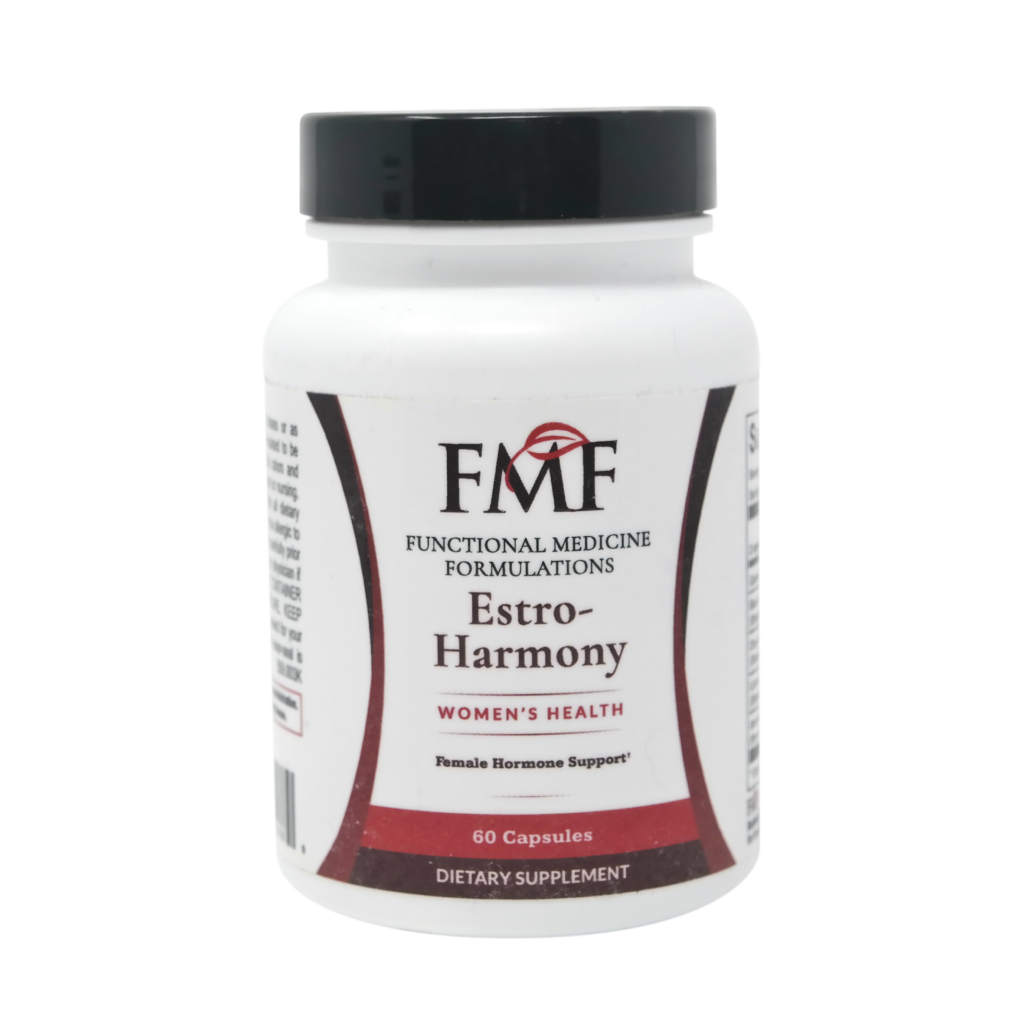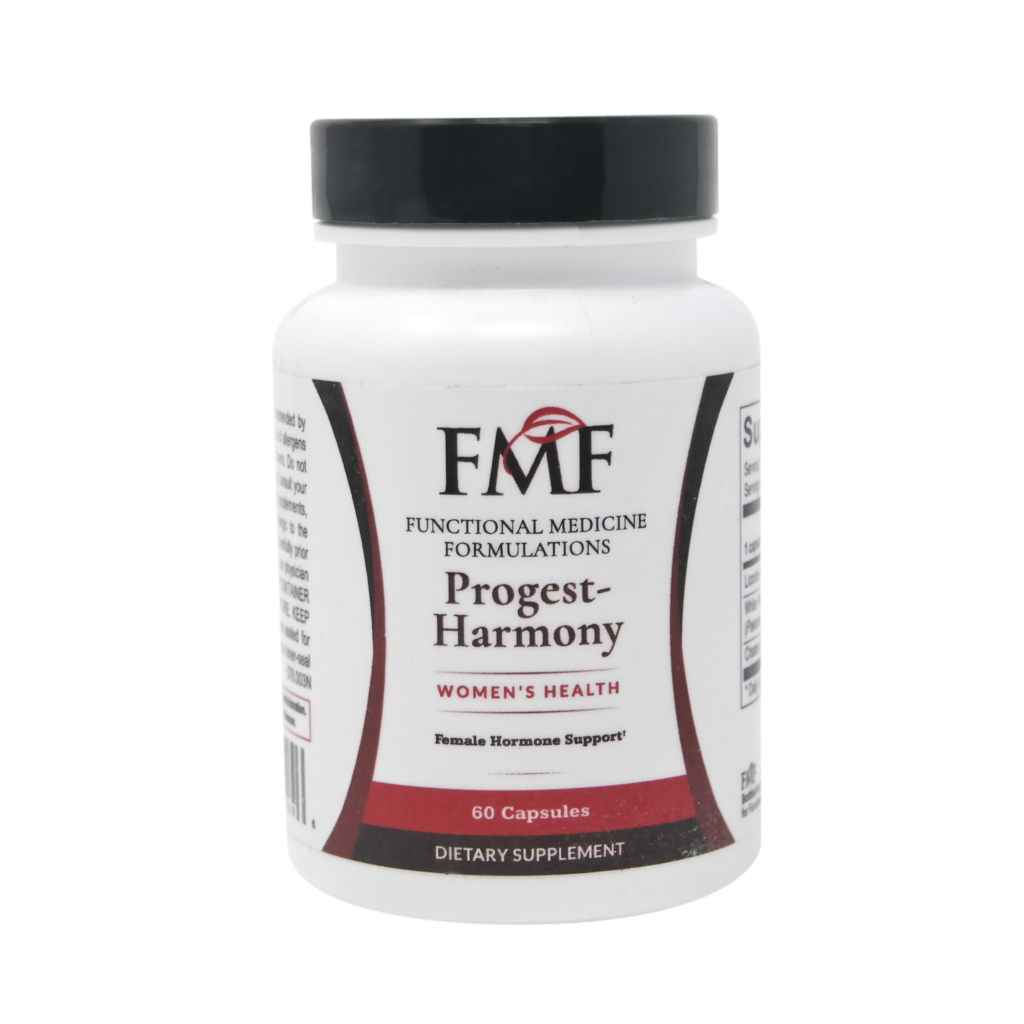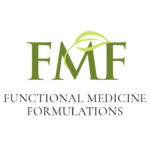3 Simple Steps to Naturally Treat PMS
Symptoms from Premenstrual Syndrome (PMS) can be a challenging part of many women’s monthly cycles. Two recent studies on adolescents show that vitamin D can be a safe and effective method for reducing these symptoms, lessening anxiety, irritability, sadness, cramps, and other associated issues. These benefits were not gained by the placebo group. Gut health and non-hormonal herbal supplements are other avenues to consider if your vitamin D levels are already optimal.
Dr. Michael Ruscio, DC: Hey everyone, this is Dr. Ruscio. Let’s discuss three simple steps you can take to improve your female hormone balance, especially if you’re suffering with PMS, irritability, mood swing, or cramps. There’s good news. There are three fairly simple, effective and natural things that you can do to improve those symptoms. Let me start off by documenting one of these, which is vitamin D. Then we’ll talk about gut health, and then we’ll talk about some herbal supplements that can also help you.
But the big thing I want to touch on today—and we’ll cover two studies to substantiate this—is that vitamin D seems to be able to help women with the symptoms of PMS.
[Continue reading below]
Study: High dose vitamin D supplementation can improve menstrual problems, dysmenorrhea, and premenstrual syndrome in adolescents
- Vitamin D has a crucial role in female reproduction, possibly through its effects on calcium homeostasis, cyclic sex steroid hormone fluctuations, or neurotransmitter function.
- Vitamin D was administered to adolescent girls as 50,000 IU per week of cholecalciferol (or 7,000 IU/day)
Results
- High dose vitamin D supplementation can reduce the prevalence of PMS and dysmenorrhea (cramps) as well as have positive effects on the physical and psychological symptoms of PMS.
- Symptoms reduced:
- PMS
- Cramps (severity of pain)
- Backache
- The tendency to cry easily
Study: Vitamin D Supplementation for Premenstrual Syndrome-Related Mood Disorders in Adolescents with Severe Hypovitaminosis D
- On the basis of the present findings, vitamin D therapy can be proposed as a safe, effective, and convenient method for improving the quality of life in young women with severe low D and concomitant mood disorders associated with PMS.
Results
- Symptoms decreased significantly
-
- Anxiety
- Irritability
- Crying easily and sadness
- Disturbed relationships
- No improvements in placebo group
Three Actions to Improve PMS, Mood Issue and to Balance Female Hormones
- Vitamin D supplementation
- FMF’s Vitamin D w/ K2 Drops at 3-4 drops per day.
- Improve your gut health, plan laid out in Healthy Gut, Healthy You
- Take the Quiz and get our Quickstart Guide to get started
- Use the herbal, non-hormonal formulations Estro-Harmony and Progest-Harmony
- View the Quickstart Guide for the Female Hormone – Gut Connection
- View our female hormone testimonial video
Download this Episode (right click link and ‘Save As’)
Vitamin D Benefits for PMS
So let’s jump in by looking at the two studies that have documented this. Firstly, I’ll put the abstract up here on the screen. “High dose vitamin D supplementation can improve menstrual problems, dysmenorrhea, and premenstrual syndrome in adolescents.” So these authors start: “Vitamin D has a crucial role in female reproduction, possibly through its effects on calcium homeostasis, cyclic sex steroid hormone fluctuations or neurotransmitter function.” They set up a study where they looked at just under 900 adolescent girls and put them on once-weekly 50,000 IUs of vitamin D.
That would break down to about 7,000 IUs per day. Of the vitamin D that I use in the clinic, that’s about three to four drops. It sounds like a lot, but it’s actually not a supremely high dose. After the intervention period of roughly nine weeks, here’s what they found: PMS significantly reduced after the intervention. Dysmenorrhea (or cramps) significantly reduced after the intervention. PMS and cramps together reduced after the intervention.
And vitamin D supplementation was also associated with a reduction in the incidence of several PMS-related symptoms such as backache and a tendency to cry easily, as well as a decrease in pain severity of menstrual cramps. This led the researchers to conclude high dose vitamin D supplementation can reduce prevalence of PMS and dysmenorrhea, as well as has positive effects on the physical and psychological symptoms of PMS. So, great news.
Sponsored Resources
Hi everyone, let’s talk about probiotics and bone broth, both of which have helped make this podcast possible. Now you may know that Kettle & Fire is one of my favorite bone broths and this is for good reason. Now, why is bone broth good? Well, it can help to heal your gut, soothe inflammation and repair your joints, nourish your skin, hair, and nails and have this kind of anti-aging effect.
This is in large part due to the nutrient profile being very nutrient dense of bone broth. Especially Kettle & Fire who are using non-GMO, organic and free-range ingredients. Now if you go to kettleandfire.com/drruscio, they’re going to offer our audience 15% off and free shipping on orders of six cartons or more. So definitely check them out at kettleandfire.com/drruscio.
Also to Functional Medicine Formulations, which is the line of probiotics that I’ve developed. I am super excited to be able to offer you the same probiotics that I’ve been working on and developing for years and years. I use these in the clinic and they are now available to you.
In this line you will find my favorite three probiotics, in each of the three probiotic categories, which work synergistically together to help fight dysbiosis like SIBO candida yeast, H. pylori, help to eradicate parasites, help to reduce leaky gut and repair the gut barrier, can improve gas, bloating, diarrhea, constipation and abdominal pain and may even improve mood, skin, sleep and thyroid function. You can learn about more about these three probiotics at drruscio.com/probiotics.
Another study was also published: “Vitamin D Supplementation for Premenstrual-Syndrome-Related Mood Disorders in Adolescents with Severe Hypovitaminosis D.” In this case, there were 158 girls given vitamin D or placebo. Here are the results: anxiety, irritability, crying easily and sadness decreased, a lessening of disturbed relationships (these are all significant decreases by the way), while there was no improvement in the placebo group.
Conclusion: On the basis of these findings, vitamin D therapy can be proposed as a safe, effective and convenient method for improving the quality of life in young women with severe hypovitaminosis D (or low vitamin D), and concomitant mood disorders associated with PMS.
So this is great news. This tells us that a simple vitamin supplement, vitamin D, can help improve PMS.

Now, what if you’re already taking vitamin D? Or if you have perhaps normal vitamin D levels and you would like to do more than vitamin D? Just to rehash, make sure that you have your vitamin D dosing where it should be based upon some of these studies. A good place to start may be using three to four drops of the formula that I’m using at the clinic, which is Functional Medicine Formulation’s Vitamin D with Vitamin K. I won’t go into the details as to why, but certainly not a bad idea to have the vitamin K accompanying the vitamin D at three to four drops per day (so not a huge dose).
Now, I wouldn’t do that dose forever. After a few months I’d have your levels checked to make sure you’re not getting too high and eventually having high levels of vitamin D. But for most people the battle will be preventing low vitamin D, getting into the normal range.
Natural Remedies for Hormonal Imbalance in Females
What if that, in and of itself, is not enough for the PMS? Fortunately, there are two other fairly simple things you can do to improve your female hormones and your PMS. One of these is improving your gut health. We’ve documented a number of case studies here in the clinic whereby improving a female’s digestion—making them less constipated, less bloated, with less abdominal pain, or less diarrhea—has led to improvements in correlated female hormone symptoms. There’s a comprehensive plan for that laid out in Healthy Gut, Healthy You.
We’re also working on a quick start guide for the Healthy Gut, Healthy You protocol and a quiz to help you see if you also have female hormone imbalances co-occurring with gut imbalances. If that quiz is ready by the time this video publishes, then we’ll attach it. If not, check back soon and that should be accessible through our home page.

In this case, I also recommend two different herbal blends that help to balance estrogen and progesterone. The ones that we’re using are Estro-Harmony and Progest-Harmony. Both of these are non-hormonal (meaning they don’t contain any hormones), rather they contain herbs that help to balance hormones. I’ve seen these be very effective when women are doing everything else right. Vitamin D, diet, lifestyle, gut health are all dialed in, but they’re still not quite where we’d like them to be. These herbs tend to give a gentle push for the hormones and get them in the right direction, where sometimes these other interventions have not had quite enough punch to get us there.

So by doing these three things—vitamin D, improving your gut health, and using an herbal supplement to balance your female hormones—there is an extremely high probability that you can see your female hormones balance and the corresponding PMS, cramps, irritability, sadness, and mood lability all decrease. If you’re a woman suffering with these problems, I wouldn’t wait another day because you don’t need to. Fortunately, there are safe and natural solutions to help improve the majority of these cases.
This is Dr. Ruscio, and I hope this information helps you get healthy and get back to your life. Thanks.





Discussion
I care about answering your questions and sharing my knowledge with you. Leave a comment or connect with me on social media asking any health question you may have and I just might incorporate it into our next listener questions podcast episode just for you!